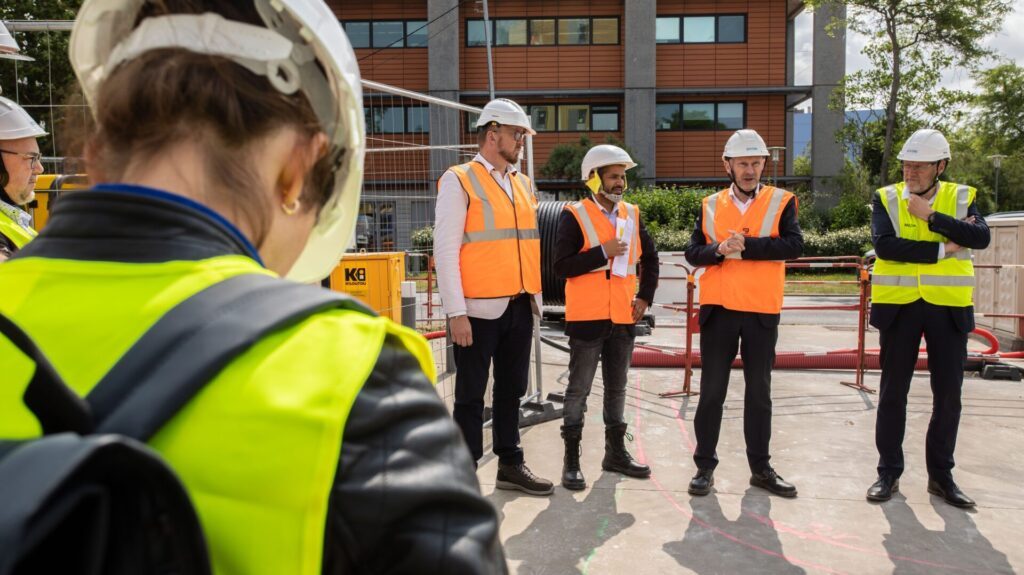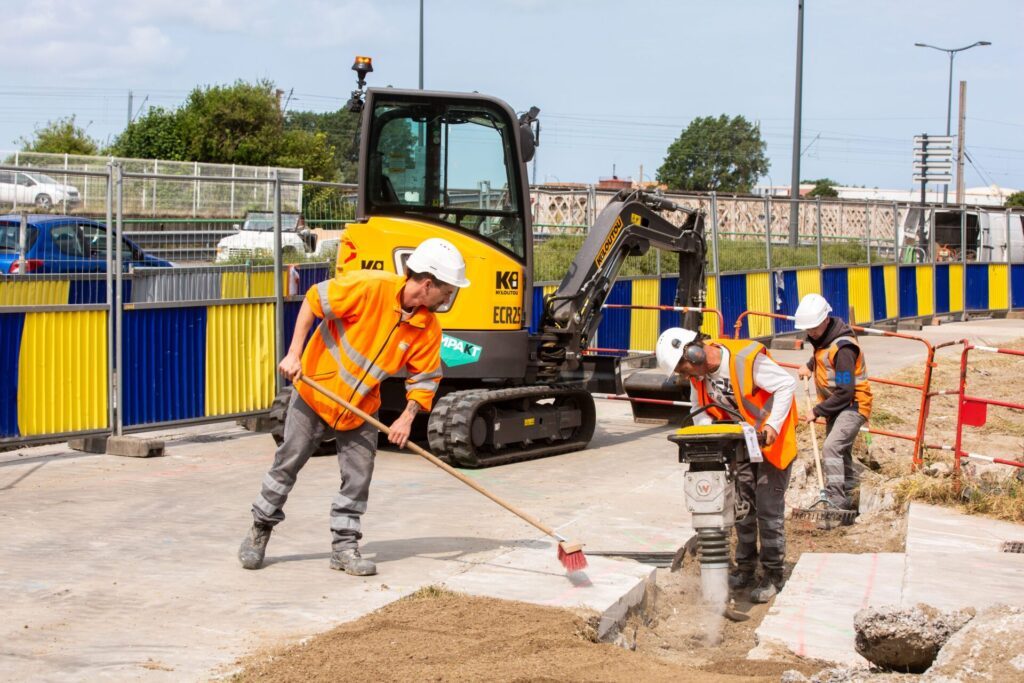Another step towards the ecological transition: Enedis and its partner company Dubrulle, equipped with equipment supplied by Kiloutou, are in the field to carry out the 1st low-carbon worksite in the Hauts-de-France region. This first experiment will help to improve the environmental footprint of worksites in the future, and to implement best practice.
The programme includes the use of low-emission machinery, such as electric equipment or machinery using renewable fuels, and the reuse of soil, which will cut CO2 emissions by 41% compared with a “conventional” worksite.

Since 26 June, Enedis and its partner Dubrulle have been connecting a new building in Dunkirk to the electricity grid. This low-greenhouse-gas-emission worksite is applying the principles of the circular economy to meet a number of objectives: improving the environmental impact of worksites, measuring it more accurately and thus contributing to the climate effort and improving the quality of life of local residents.
On this site, electric equipment or equipment using renewable fuels,
supplied by the Kiloutou Group, reflect a shared commitment to decarbonising activities and uses.
and uses. These include
- Electric earthmoving equipment: 2.5 T shovel, 800 L loader, etc.
- Thermal equipment using biofuel (HVO of renewable origin)
- Electric tools: battery-powered rammer and chainsaw
- A recharging system for electric equipment: 45 KVA powerbank
This equipment reduces CO2 emissions by 90% compared with their combustion equivalents, saving 3 tonnes of CO2 equivalent, or almost 15,000 km by car.

Another special feature of this project was the reuse of soil, which was recovered and recycled by the Dubrulle company, resulting in a 22% reduction in greenhouse gas emissions.
This is an important project for Enedis, a major player in the ecological transition, and will provide initial feedback with a view to improving site practices in the years to come. A detailed analysis will then be shared with all those involved in the project, in particular the Dunkirk urban community, to enable them to optimise their own worksites.
The project players
Enedis, the project leader
Enedis is a public service company that manages the electricity distribution network and employs 38,000 people. Serving 37 million customers, it develops, operates and modernises 4 million kilometres of low- and medium-voltage electricity network (230 and 20,000 volts) and manages the associated data. Enedis connects customers, carries out repairs 24 hours a day, 7 days a week, reads meters and carries out all technical interventions. Working on behalf of the local authorities that own the networks, it is independent of the energy suppliers who are responsible for selling and managing the electricity supply contract.
Dubrulle, a partner in the field alongside Enedis
DUBRULLE TP is celebrating its 50th anniversary this year, and currently has 102 employees and a 2022 turnover of €15.6m. DUBRULLE TP has been managing its spoil for 30 years, and has been involved in sustainable development since 2010, when the company set up its eco-platform and recycling plant (85% of site spoil is recycled, with a target of 92% by 2030). The company’s slogan is “Innovating sustainably together”.
Since 2018, Thibaut Dubrulle, Managing Director of Dubrulle TP, has been Chairman of the Sustainable Development Commission within the Fédération Régionale des Travaux Publics des Hauts de France. The company is heavily involved in the CSR approach, as well as in the ecological transition, and strongly believes in electric power for all portable equipment as well as for site machinery < 2.5 T, and in hydrogen for machinery > 3.5 T.
Kiloutou, a supplier of low-carbon equipment
Kiloutou’s iMPAKT range of alternative equipment is designed to help construction and public works professionals reduce the carbon footprint of their sites. With electric or hybrid engines, or the use of biofuels, the rental company aims to reduce greenhouse gas emissions and fine particles, without compromising on performance.
Thanks to fast-charging and powerbank solutions, the long-criticised range of heavy machinery and tools is no longer a barrier to the use of low-carbon equipment.
The other significant advantage of these new technologies lies in the working comfort they bring to their users: the reduction in vibrations and above all noise plays a major part in reducing the risk of musculo-skeletal disorders, fatigue and arduousness. Not to mention the acceptance of the site by the neighbourhood.